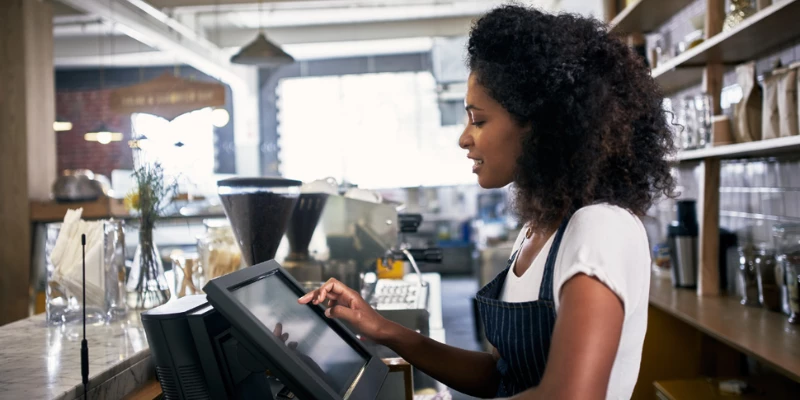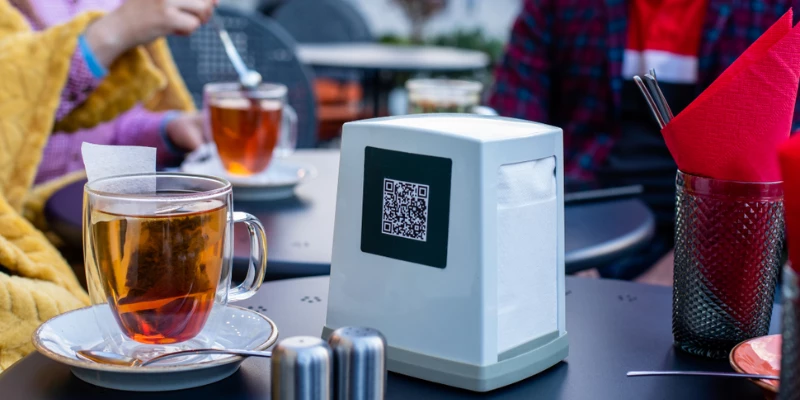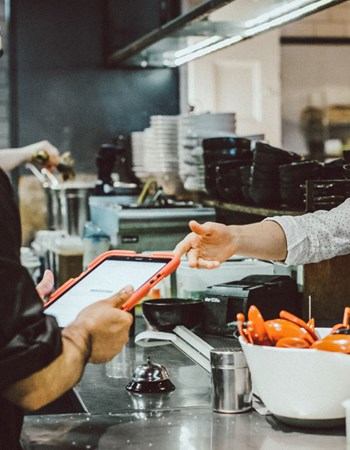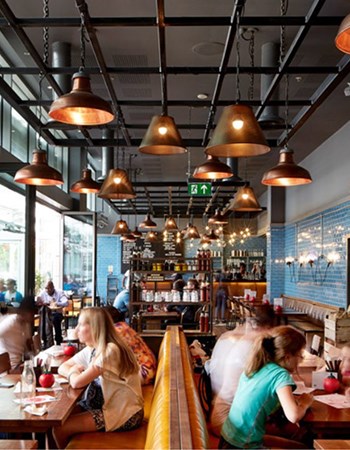-
- Solutions by business priority
- Boost efficiency and profitability
- End to end workforce management
- Attract customers and increase bookings

What is Digital Sustainability, and why is it important to your hospitality business?
Sustainability remains a central theme in the hospitality industry, where determining your business's sustainability goals is not just a choice but a key driver of success. This shift is not only in response to government directives aiming for net-zero emissions by 2050 but also reflects the growing impact of sustainability on consumer preferences.
While numerous hospitality businesses have made commendable strides in embracing sustainable practices, the quest for more ambitious sustainability initiatives has operators exploring additional focal points.
 7 min
7 min

Written by Jen Grenside
At Access Hospitality, we’re also thinking about sustainability, and how digital software plays a role. Specifically, two significant ways software solutions contribute to digital sustainability are through the adoption of energy-efficient functional hardware and responsible hardware maintenance or recycling. Additionally, the digitalisation of processes aids businesses in achieving sustainability goals by optimising practices, such as minimising paper and food waste.
In this article, our focus is on digital sustainability—unpacking what it means and guiding businesses on the path to becoming more sustainable in the modern landscape.
Why is digital sustainability important in hospitality?
Digital sustainability is of increasing importance in the hospitality sector due to the high rate of adoption of digital processes and hardware to help restaurants, bars, pubs, and hotel businesses run more efficiently.
By utilising digital technologies, hospitality operators can streamline and optimise processes, minimise resource usage and adopt energy-efficient practices, contributing to both ecological responsibility and financial savings. The adoption of digital sustainability aligns with increasing consumer expectations for more ethical and sustainable practices. Additionally, it ensures compliance with government objectives aimed at reducing environmental impact.
Embracing digital sustainability positions hospitality businesses at the forefront of technological trends, offering innovative services and staying competitive. Beyond operational advantages, it reflects a commitment to corporate social responsibility, contributing to a positive corporate image. In the dynamic landscape of the hospitality industry, integrating digital sustainability is not just a choice but a strategic imperative for long-term success.

Sustainable tech solutions for hospitality
As technology has become business-critical, finding a way to offset technology-induced emissions should be a priority.
Similarly, when systems break or need replacing, this kind of technology can be incredibly damaging to the environment if it ends up in a landfill.
That’s why it’s so important to make the most out of the technology you use. This could mean:
- Buying recycled devices or upscaling older units.
- Streamlining the number of devices, you need by using certain pieces of equipment for multiple duties.
- Upgrading technology to the point where it can take over superfluous jobs and allow your staff to focus on what really matters, lowering food and paper waste.
How can I improve my digital sustainability?
If you’ve got an eye on the future and want to stay one step ahead of the competition, then it’s clear that improving your digital sustainability is an important step to take. But what exactly can you do?
Ditch paper trails in favour of digital devices
The most obvious form of digital sustainability is integrating digital devices into your hospitality business to drive efficiency and reduce waste. This can be done in multiple ways, but the most commonplace is replacing unnecessary paper with digital alternatives.
Menus
Restaurants tend to update their menus several times a year, often seasonally.
When dealing with a physical menu, each update requires it to go through the process of design, printing, and distribution. This is not only costly, but the distribution can increase your carbon footprint. And that’s without factoring in the waste that comes from getting rid of old menus. By integrating a mobile ordering system, you can easily replace menus with a QR code on each table that takes customers to an online menu where they can send their orders directly to the kitchen.
Less vulnerable to wear and tear and easily updated, digital menus cost less in the long run. They also make for a more efficient business, as they cut down on serving and cleaning times for your staff.
Orders & Receipts
By taking orders through a tablet or the mobile ordering system, you can cut out excess paper usage, like order taking or receipts.
The UK uses approximately 9.9 million tonnes of paper every year, which comprises about 20% of all the waste in the UK. By digitising unnecessary paper processes in your business, such as orders and receipts, you can help cut down on that significantly.
As mentioned, these processes relay orders directly to the kitchen (or in the case of receipts, the customer’s email) and leave customers, wait staff, and kitchen staff with less paper to throw away immediately after they’ve used it.

Signage
Signage is another area where a digital alternative can help you be more sustainable. As with menus, orders, and receipts, digital signage removes the need for several tons of paper and ink.
Like menus, signs often have to be updated every time a new campaign is launched. The design, print, and order costs still apply, along with the emissions that come from transportation. The beauty of digital signs lies in their modular construction, allowing for targeted replacements of malfunctioning components rather than replacing the entire unit for minor issues or corrections.
Although digital signage and self-service kiosks are commonly associated with quick-service restaurants and takeaways, these features are poised to make inroads into various other hospitality businesses. Beyond their sustainability benefits, these changes cater to the evolving preferences of modern consumers. Notably, 48% of consumers in 2022 expressed a preference for using technology to place orders and pay for food and services, marking a significant 12-point increase from 2020. The dual impact of sustainability and convenience positions digital signage as a transformative and customer-friendly addition to the hospitality landscape.
Maximising efficiency with integrated tech solutions
In the pursuit of digital sustainability, businesses should consider integrated technology solutions. And that means considering the future integration capabilities of the tech you choose now, so you can expand more easily in the future.
A particularly good example of this is to choose a robust EPoS system. Restaurant EPoS systems can streamline your operation systems by connecting various facets of your business. By combining all of these integral functions into one piece of tech, you’re using fewer devices and minimising your digital emissions. Our cloud-based EPoS can combine and connect multiple functions, such as:
- Stocktaking
- Forecasting
- Order and pay
- Loyalty Schemes
- Restaurant Booking Systems
- Delivery Apps
Recycling outdated tech
One thing about technological advancement is that hardware systems can become obsolete or outdated over time. And it should be part of your business sustainability mantra to be responsible for the maintenance and eventual replacement of digital hardware.
If the hardware is fine, but the software is no longer operating as it should, some options will allow you to avoid replacement. Old technology can be given new life, either through refurbishment or by updating the operating system. Instead of throwing your old PoS system away, why not update it with a cloud-based OS that revitalises the technology and uses less energy than an on-site server room?
If a piece of technology truly is no longer any good to you, that doesn’t mean it won’t be of use to someone else.
Whatever you can do to keep that older technology out of landfill is hugely beneficial to the planet, and a big part of digital sustainability.
Digital sustainability - the focus of forward-thinking hospitality chains
In this article, we’ve explored the topic of digital sustainability and how digital sustainability should be a specific consideration for technology-led businesses.
Forward-thinking, sustainability-focused, customer-friendly businesses are sure to stand out and profit in the years ahead. If you would like to find out more about the software solutions that can give you the lead, our friendly specialists are always available to talk you through the options that are right for you.
Book a personalised demo today to find out how you can leap to the forefront of digital sustainability.






